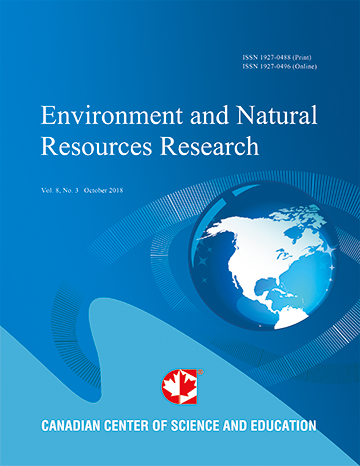Soil Quality Response to Long-Term Nutrients and Management Practice to Potato Production in Ultisols of Subtropical China
- Odunze C.
- Jinshui Wu
- Shoulong Liu
- Hanhua Zhu
- Tida Ge
- Yi Wang
- Qiao Luo
Abstract
Development of sustainable agricultural system require cognizance of soil quality status, extent and impact of degradation processes and land use management strategy in practice. Response of soils to management and inputs are important considerations that depend on soil quality and was therefore evaluated in this study for Ultisols in subtropical China. Changes in soil quality were assessed by measuring appropriate indicators from a long-term experiment at the Taoyuan Station, Hunan province, China from 2000 to 2009. Data obtained were analyzed using the SAS statistical package for ANOVA and means were separated with DNMRT, matched graphically to delineate threshold limits for a minimum threshold data set. Results show that the soils responded positively with Sweet potato-rape/NP+straw treatment (7.18 g kg-1) contributing significantly (P<0.05) higher total carbon and least total carbon was contributed from Sweet potato-rape/nil fertilizer and Fallow/nil fertilizer application treatments. Highest total nitrogen was contributed by Sweet potato-rape/NP+ straw (0.882 g kg-1) and was significantly (P<0.05) higher than each of the other treatments. Sweet potato-rape/NPK+stalk treatment also resulted in significantly higher biomass carbon (132.66 mg kg-1) to be better biomass carbon contributors than the other treatments. Biomass nitrogen contributed by Sweet potato-rape/NPK+stalk (23.96 mg kg-1) was also significantly higher, to be preferred over Sweet potato-rape/NPK (18.34 mg kg-1), Sweet potato-rape/nil fertilizer (16.36 mg kg-1) or Fallow/nil fertilizer (14.92 mgkg-1) in contributing nitrogen into the Ultisols. This study also show that treatments with stalk amendments resulted in 3.6 to 5.7% biomass carbon and 15.8 to 23.5% biomass nitrogen increase over Sweet potato-rape/NPK. Increasing trends of biomass carbon, nitrogen and phosphorus in the Ultisols were attributed to organic matter inputs as compliment fertilizer materials. Percent decline in potato yields were as high as 65.57% of 2007 yield value and require that further investigation be conducted to ascertain cause of this decline and forestall future yield depressions. Threshold limits for selected minimum data set for the subtropical China region Ultisols on sweet potato production was produced to enhance future soil quality monitoring in support of sustainable crop production and national food security.- Full Text:
 PDF
PDF
- DOI:10.5539/enrr.v2n1p129
Journal Metrics
Google-based Impact Factor (2016): 6.22
h-index (November 2017): 12
i10-index (November 2017): 19
h5-index (November 2017): 11
h5-median (November 2017): 12
Index
Contact
- Emily LinEditorial Assistant
- enrr@ccsenet.org
